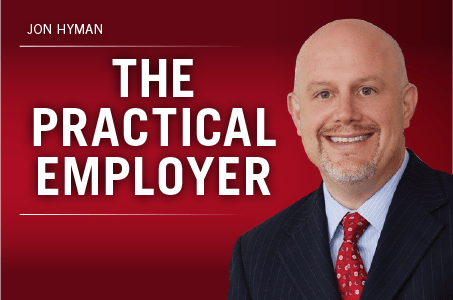I am a podcast fanatic. It’s the best way to spend time on my daily commute and to fill the speakers of my car stereo, I have an unending list of podcasts to which I subscribe.
They run the gamut from music related (“Wheels Off With Rhett Miller”), human interest (“Terrible, Thanks for Asking”), travel (“Bittersweet Moment”), and technology (“Reply All”). But my favorite is “Ear Hustle.”
“Ear Hustle” is a podcast about “the daily realities of life inside prison shared by those living it, and stories from the outside, post-incarceration.” One of its recent episodes discussed the realities and difficulties the incarcerated face trying to find employment upon their release from prison.
Bottom line? Once an employer finds out you committed a felony and spent time in prison, your employment prospects drop dramatically. And most learn of this information by an applicant checking the “Yes, I’ve been convicted of a felony” box on their employment application.
Earlier this year, the 5th Circuit Court of Appeals upheld an injunction that blocked the EEOC’s guidance on criminal background checks as unlawful and banned its continued implementation or use.
That injunction is significant for many reasons, not the least of which is that the EEOC’s guidance opined that employment applications that ask whether an applicant has ever been convicted of a felony violate Title VII on their face. Why? Because blacks and Latinos are incarcerated at a rate that is statistically significantly higher than whites.
The movement against employers asking this question on job applications is called “ban the box” — cleverly titled after the box applicants are asked to check if they’ve been convicted of a felony. Nationwide, 35 states and over 150 cities have adopted ban the box laws.
So what’s wrong with laws that are intended to give those with felony convictions in their background a chance at getting past the application stage of their employment search? The laws don’t work.
As illustrated on “Ear Hustle,” ban the box merely moves the criminal background check from the application stage to the formal background check stage. Employers that are predisposed not to hire felons are not going to hire felons. They will just ding them later in the hiring process — after the expense of a formal criminal background check. These laws aren’t changing employers’ minds or attitudes. They are just giving felons false hope.
Moreover, according to two recent studies, ban the box laws are causing more racial discrimination by improving the hiring prospects for whites, while making them worse for blacks and Latinos. The conclusion drawn by these studies is that when employers can’t see who has a criminal record, they still avoid people they think are likely to have criminal records by resorting to guesswork.
As a result, racial discrimination against black and Latino job applicants (especially men) replaces discrimination based on criminal record. In other words, banning the box doesn’t just fail to help those its intended to help, but it also might hurt anyone who happens to be black or Latino.
Thus, if ban the box laws either create a more damaging reliance on unconscious racial biases (as these studies suggest) or push the consideration of criminal backgrounds to later in the hiring process, where employers will still use them to disqualify candidates (albeit with higher transaction costs in the hiring process), why do we have them?
If ban the box laws aren’t working toward their intended results of opening job opportunities for ex-cons, then what should we do to achieve this laudable goal? I suggest a three-pronged approach:
• Job training within the prison system to provide the incarcerated with transferable real-world job skills and a certification they can provide to a prospective employers upon their release.
• Tax credits to incentivize businesses to hire these felons.
• A privilege from negligent hiring and other liabilities for employers that hire certain felons for certain positions (i.e., We still don’t want sex offenders working in schools, but they might able to work in a manufacturing facility if they are otherwise qualified and sufficiently rehabilitated).
We need something to break the cycle of crime, and that something is jobs. Stable employment and steady income will help stem recidivism and keep people from returning to crime as a means of support.
If ban the box isn’t working toward this goal, then local, state and federal governments need to abandon ban the box and look for other solutions to this problem.

